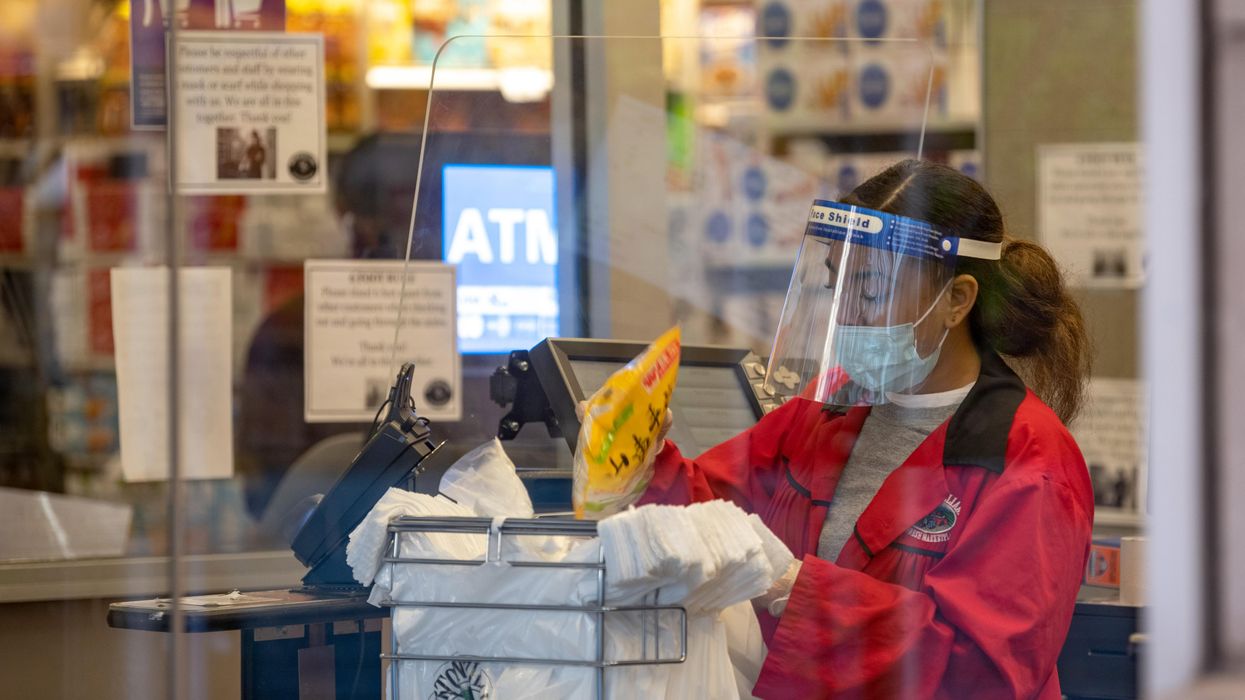Kachman, a recent graduate of Michigan State University's James Madison College, is a volunteer writer for Wolf-PAC, which seeks to build grassroots support for a constitutional amendment permitting more regulation of money in politics.
Many of us have worked from home during the pandemic, but not everybody has that luxury. Have you been to your local grocery store? Minimum wage workers who have kept food on our tables have been called "frontline heroes" – and yet when the chance arose to increase their wage to $15 an hour, the proposal was voted down. And the vote was not just along party lines – eight Democrats joined Republicans in rebuffing the bill.
These votes are influenced by the massive power that special interests have over our government. Shopping at a National Grocers Association member store? The NGA has taken a hard stance against raising the minimum wage. Ordering takeout from a restaurant? The National Restaurant Association poured almost $3 million into campaign contributions to both major parties to secure influence in Washington, D.C., and defeat minimum wage legislation. This recent disappointment for minimum wage employees is symptomatic of the corruption that prevents fair pay for hourly employees across the country. While some areas are working to remedy this issue locally, it is woefully insufficient in the face of national inaction.
Congress created the minimum wage in 1938 to ensure that the lowest-paid members of society could keep up with the cost of living. But the federal minimum wage has not been raised for 12 years. In 2019, popular support for raising the minimum wage to $15 dollars reached 67 percent, according to the Pew Research Center. If the goal is to help workers and a majority agrees with the raise, what is taking so long?
It is a response to pressure from major groups that funnel millions of dollars to legislators at the expense of the American people. Many prominent business groups publicly oppose H.R. 582, the Raise the Wage Act. Open Secrets, an independent and nonpartisan nonprofit that records public donations, reports the NGA, NRA, National Federation of Independent Businesses and others have all made significant political expenditures in the last two years. The National Association of Manufacturers spent $14,610,000 on lobbying in 2019, the NRA spent $2,890,000, and the NFIB spent $4,720,000. These groups buy influence in D.C., giving them an outsized voice in policies that affect American workers.
Popular and common-sense bills such as H.R.582 will not gain traction until we remind our national legislators that they represent their constituents, not the large corporations and special-interest groups. To achieve fair minimum wage legislation, we must remove the influence of big money on our politicians by reforming campaign finance laws. The idea that politicians might loosen their grip on this money is about as likely as seeing them support a fair minimum wage for their constituents. However, we have a path forward: Amend the U.S. Constitution to control campaign financing, and take the conversation out of the hands of corrupt politicians. This would force national leaders to serve the people. You can help in this effort by joining Wolf-PAC, a volunteer organization dedicated to bringing about such an amendment.


















 Senate Committee on Commerce, Science, and Transportation ranking member Sen. Maria Cantwell (D-WA) (R) questions witnesses during a hearing in the Russell Senate Office Building on Capitol Hill on February 10, 2026 in Washington, DC. The hearing explored the proposed $3.5 billion acquisition of Tegna Inc. by Nexstar Media Group, which would create the largest regional TV station operator in the United States. (Photo by Chip Somodevilla/Getty Images)
Senate Committee on Commerce, Science, and Transportation ranking member Sen. Maria Cantwell (D-WA) (R) questions witnesses during a hearing in the Russell Senate Office Building on Capitol Hill on February 10, 2026 in Washington, DC. The hearing explored the proposed $3.5 billion acquisition of Tegna Inc. by Nexstar Media Group, which would create the largest regional TV station operator in the United States. (Photo by Chip Somodevilla/Getty Images)
